How Yemeni blockade crippled Israeli sea traffic in 1 year of Gaza war?
By Ivan Kesic
In a year of solidarity operations with Palestine and the implementation of the blockade of Bab-el-Mandeb for Israeli-affiliated and their allied ships, Yemen has caused colossal damage to Israeli sea traffic and at the same time resisted Anglo-American military intervention.
On October 19 last year, twelve days after the Hamas-led Operation Al Aqsa Flood against the Zionist entity and the start of the regime's genocidal war on Gaza, Yemen, as a key member of the Axis of Resistance, joined the movement and launched drones and missiles at the Israeli military targets.
After its calls for an end to the Israeli genocidal war against Palestinians in Gaza were snubbed, the Yemeni military also launched massive military operations against Israeli ships in regional waters, effectively setting up a blockade of the Bab-el-Mandeb Strait.
With the continuation of Israeli genocidal crimes and the direct involvement of the United States and the United Kingdom in attempts to circumvent and nullify the blockade, Yemen gradually increased the intensity and scope of its operations in solidarity with Gaza.
In the past year, as the genocidal war marked one year on Monday, Yemen has dealt a heavy blow to the Zionist entity and targeted almost 200 ships in the Red Sea, the Gulf of Aden and the Arabian Sea.
Before the war on Gaza began 15 percent of the world's international trade flowed through this maritime route, and today the traffic has been reduced to a third: from 80 ship passages last year to 29 last month, or from 4.89 million metric tonnes to 1.36 million metric tonnes.
An even more devastating effect has been on the maritime trade of the Israeli regime, which has been derailed by Yemeni determination and resilience, as well as the failure of Israel's Western allies to confront the Yemeni armed forces in its waters.
On Monday, marking the first anniversary of the Oct. 7 operation, tens of thousands of Yemenis gathered in the capital Sana'a and other Yemeni cities, renewing their pledge of solidarity with the people of Gaza and Lebanon.
It came two days after the leader of Yemen’s Ansarullah resistance movement said the Israeli regime would face “destruction” for its acts of genocide against the Palestinians in the Gaza Strip.
“The enemies are trying to rebuild international alliances and strengthen the relations of the Israeli regime with the great powers of the world to give the enemy international strategic influence. But with this amount of killing by the Israeli regime, there is no doubt that the regime will be destroyed,” he said.
Mass protests in Yemen mark anniversary of Al-Aqsa Flood Operation@lat6ff reports from Sana'a pic.twitter.com/4N1WKVtBTa
— Press TV 🔻 (@PressTV) October 8, 2024
Yemeni naval operational phases
Yemeni military operations in the last year comprised five major naval operational phases, with new ones that always expanded the scope of action, new areas, targets and weapons.
The operational phases were the result of certain enemy escalations in Gaza and Yemen itself, and each newer phase was always officially announced, with clearly defined goals and warnings.
The first phase was launched on November 19, 2023, when Yemeni military forces in the Red Sea intercepted and seized the 189-meter-long Israeli ship Galaxy Leader in a spectacular and widely covered operation using speedboats and a helicopter.
Top Yemeni officials announced at the time that the capture of the ship was just the beginning of a series of retaliatory naval operations and that Israeli-affiliated ships would be targeted as long as the aggression against people in Gaza continued.
All Israeli ships, military and commercial, owned or operated by Israeli companies or under the Israeli flag were identified as potential targets, and Yemen had precise information about all such vessels.
They also said that Israeli camouflage and flag manipulations would not help them be spared of the operations while calling on all countries to withdraw their nationals from such ships.
The warning was not taken too seriously and the West underestimated the Yemeni military might, depicting them as tribal warriors with rudimentary weapons, so the Israeli-affiliated merchant fleet continued sailing through the Red Sea.
This proved disastrous as Yemen began targeting dozens of ships every month with drones, anti-ship and ballistic missiles, showing the world an impressive arsenal of weapons manufactured locally.
Due to the continuation of Israeli genocidal crimes in Gaza, as well as Benjamin Netanyahu's threats and calls to the United States to help him prevent the blockade, Yemen gradually expanded its operational activities in a new phase.
Yemeni army vows to target Israel-linked ships until Gaza genocide ends
— Press TV 🔻 (@PressTV) September 4, 2024
Press TV's Yousef Mawry reports from Sana'a#GazaGenocide pic.twitter.com/m8TlSMmhjW
On December 9, 2023, the country in the southern Arabian Peninsula, bordering Saudi Arabia to the north, Oman to the northeast, and the Indian Ocean to the south, declared all vessels heading to the Zionist entity as legitimate military targets and extended operations from the southern Red Sea to the Bab-el-Mandeb as part of the new phase.
Although a naval coalition led by the US and the UK was formed in December, which also launched a major missile attack on Yemeni ground positions in mid-January, the resistance remained steadfast.
Yemen not only did not stop the attacks but doubled them, further declaring American and British interests as military targets and expanding strikes to the Gulf of Aden in the third phase.
By mid-March, a total of 73 ships had been targeted, when a new expansion of operations into the Arabian Sea and Indian Ocean was announced, including Israeli-affiliated ships plying the latter waters around the Cape of Good Hope.
In the following month, the first strike in the Arabian Sea was carried out, about 600 km from the Yemeni coast, making it the farthest recorded Yemeni strike at the time.
In early May, top Yemeni officials announced that in the event of an Israeli invasion of the Palestinian city of Rafah in southern Gaza, a fourth phase of retaliatory naval operations would take effect.
It was emphasized that all ships and companies regardless of their nationalities and destination, that violate Yemeni-imposed sanctions banning the use of occupied Palestinian ports on the Mediterranean coast will be targeted in any area within the Yemeni military's reach.
The fifth phase was announced on July 19, on the occasion of the successful drone strike on Tel Aviv, when it was stressed that Yemen would intensify strikes on Israeli and American interests in the Indian Ocean and the Mediterranean Sea.
On the same day, they confirmed that the number of targeted Israeli, American and British ships had reached 170, adding that the Yemeni operations were carried out with 25 ballistic and cruise missiles, drones, and naval vessels.
This figure has increased in the past three months to nearly 200, with the latest case on Thursday when the British tanker Cordelia Moon was hit.
Yemeni army launches fresh naval attacks@lat6ff reports from Sana'a. pic.twitter.com/tdIsLtF9QQ
— Press TV 🔻 (@PressTV) June 25, 2024
Economic impact on Israeli regime
Yemen's military operations over the past year have had a disastrous impact on Israeli-occupied seaports as a significant proportion of ships have been forced to use an alternative route around the Cape of Good Hope, increasing costs and travel by several weeks.
Insurance for Israeli commercial ships passing through the Red Sea has also multiplied, and in many cases, insurance companies have refused to service them due to high risk.
Yemen's naval blockade, along with frequent drone and ballistic missile strikes on the Zionist entity's southernmost city, has had a devastating impact on the regime's economy and tourism, leading to the complete collapse of the occupied port of Eilat.
In late December, the port reported a 90 percent drop in trade activity and declared bankruptcy in July when its CEO Gideon Golbert said there had been no activity at the port for eight months and no revenues were coming in.
Earlier in January, when the losses were estimated at $3 billion, Golbert announced that the port could only sustain operations for at most one month, after which they would be forced to consider layoffs and partial business closures. In recent months, the port has come to a grinding halt.
Previously, it was the regime's third largest port, after Haifa and Ashdod, and their only port in the Red Sea, handling primarily bulk cargoes like minerals, as well as containers and car imports from Asia.
The port was the backbone of the city's economy and the regime had big plans for it, building a new airport, warehouses and tourist complexes, inviting investors from the largest countries.
Due to the connection of oil pipelines and roads with the Mediterranean coast, some even considered that the Eilat corridor has the potential to become a competitor of the Suez Canal, which has annual profits of up to $10 billion.
In addition to the bankruptcy of the port, many of these long-term plans failed and most investors disappeared as they saw no future in their investments there.
The blockade also affected two other international ports as 30 percent of the imported goods in Haifa and Ashdod arrived from the Red Sea, via the Suez Canal, and the overall transshipment volume for all Israeli seaports decreased by 70 percent already in early 2024.
Yemen has recently stepped up its military operations in the Red and Arabian Seas, particularly against US and Israeli interests.
— Press TV 🔻 (@PressTV) May 7, 2024
Press TV has talked to Yemeni Minister of Information Dhaifullah al-Shami about Yemen's pro-Palestine measures. pic.twitter.com/b9u0T7ENTy
The Port of Ashdod witnessed a 94 percent reduction in imported car quantities at the beginning of the year, and in August, local media reported that it lost 63 percent of its profits during the second quarter of this year.
The losses of the port of Haifa have yet to be assessed due to recent attacks by the Hezbollah resistance movement on the area, and port activities were also hampered by a workers' strike in September due to solidarity with the families of the prisoners in Gaza and opposition to Netanyahu.
In July, the port of Ashdod chairman Shaul Schneider stated that if the northern front with Hezbollah is opened, all Israeli-occupied seaports will be inoperative except for Ashdod.
It should also be emphasized that 99 percent of Israeli international trade comes through these three ports because air traffic and trade with neighboring Egypt and Jordan is extremely small.
Furthermore, Yemeni drone and missile strikes on Eilat and Tel Aviv have repeatedly derailed traffic at the regime's two only international airports, Ramon and Ben Gurion, respectively.
The blockade of the southern seas has forced the Israeli regime to frantically search for an alternative, especially in the form of a corridor across the Arabian Peninsula that Netanyahu presented on maps during the last two speeches at the UN session.
This land corridor, also favored by the United States, connects the Emirati and Bahraini ports with Haifa and Eilat, via roads passing through both Saudi Arabia and Jordan.
During the trial phase of the new transport route in December, ten trucks completed the ten-day journey from Dubai's port to Haifa, with no known activity thereafter.
Observers described the journey as a charade to show that the Yemeni blockade doesn't work and as an Israeli psyop targeting settlers to raise their morale under a difficult economic situation.
Economic analysts also point out that such a land corridor, despite Israeli ambitions, simply cannot replace existing sea routes, especially in the case of oil, gas, and bulk cargo transport.
Furthermore, just to replace one month of Israeli seaport traffic of several million tons, which was previously carried out via the Red Sea, it would be necessary to hire tens of thousands of heavy-duty trucks and build accompanying infrastructure, both currently nonexistent.
5 Israeli forces killed as Palestinian fighters face up to regime’s war machine
VIDEO | Israeli settler killed during strike against Tel Aviv; fresh aggression targets Yemen’s capital
VIDEO | Yemen’s missile strikes on Tel Aviv
Iran to open 6 GW of new power capacity by next summer
VIDEO | South Korean rallies set the stage for battle over Yoon's impeachment
Hamas, other Palestinian groups say Gaza ceasefire deal ‘closer than ever’
VIDEO | Press TV's news headlines
Iran condemns ‘violent’ attack on Christmas market in Germany


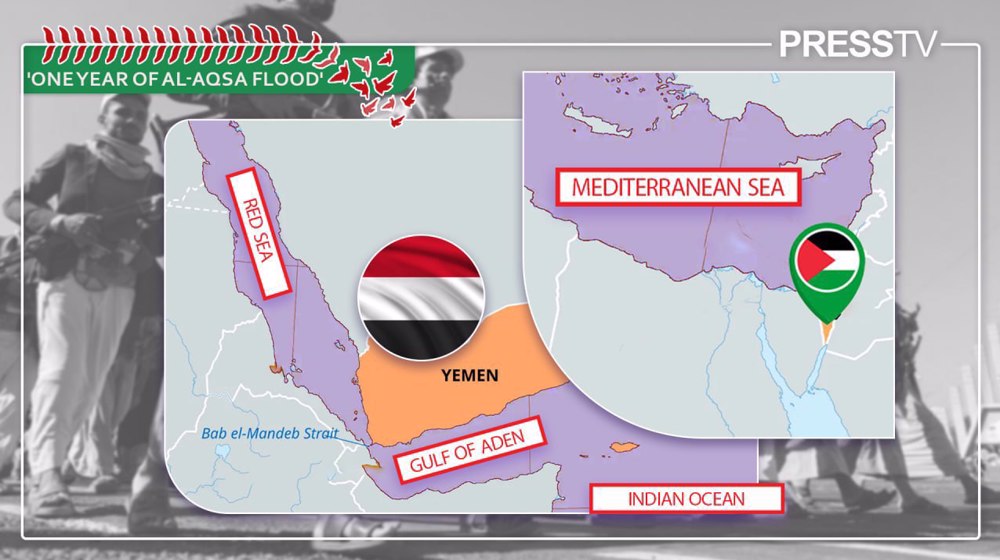
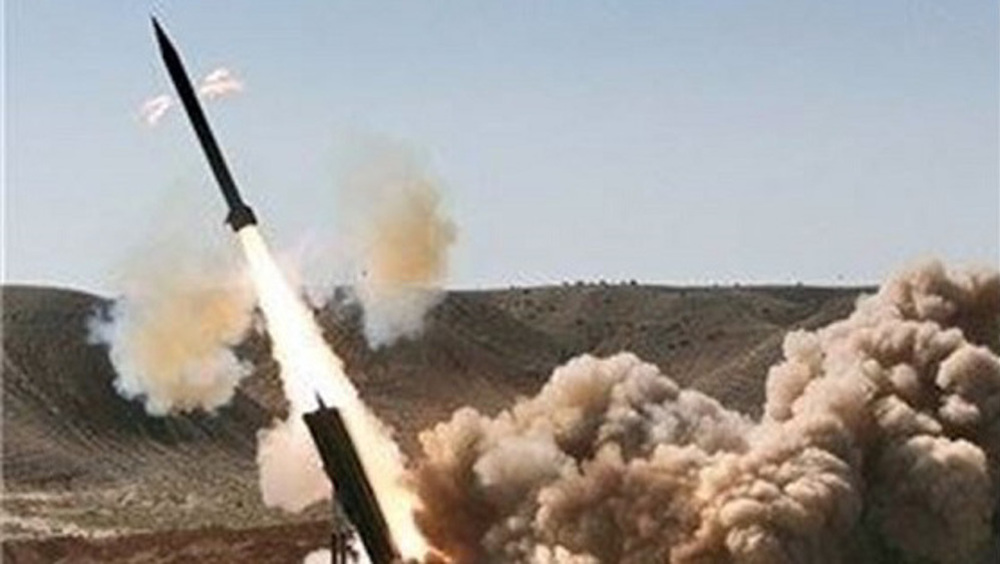
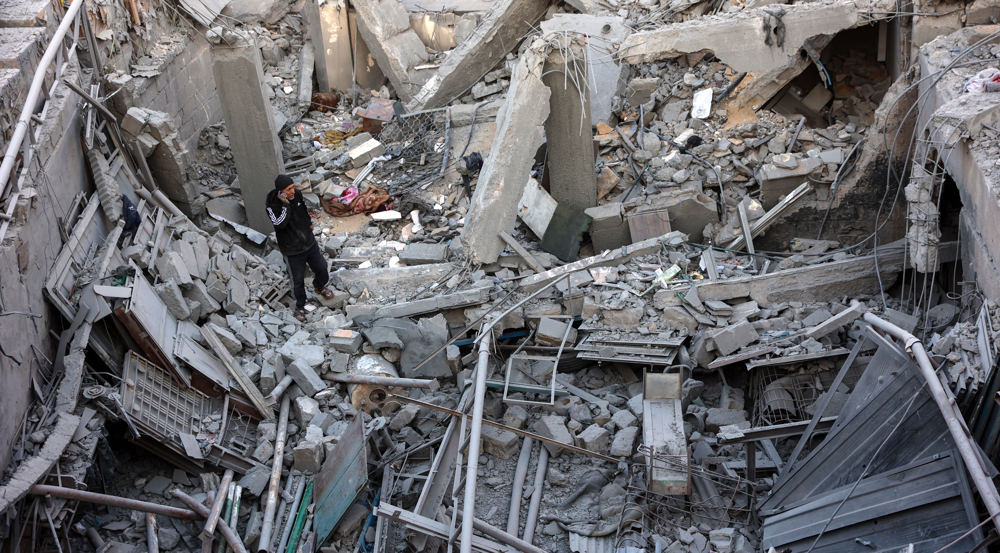




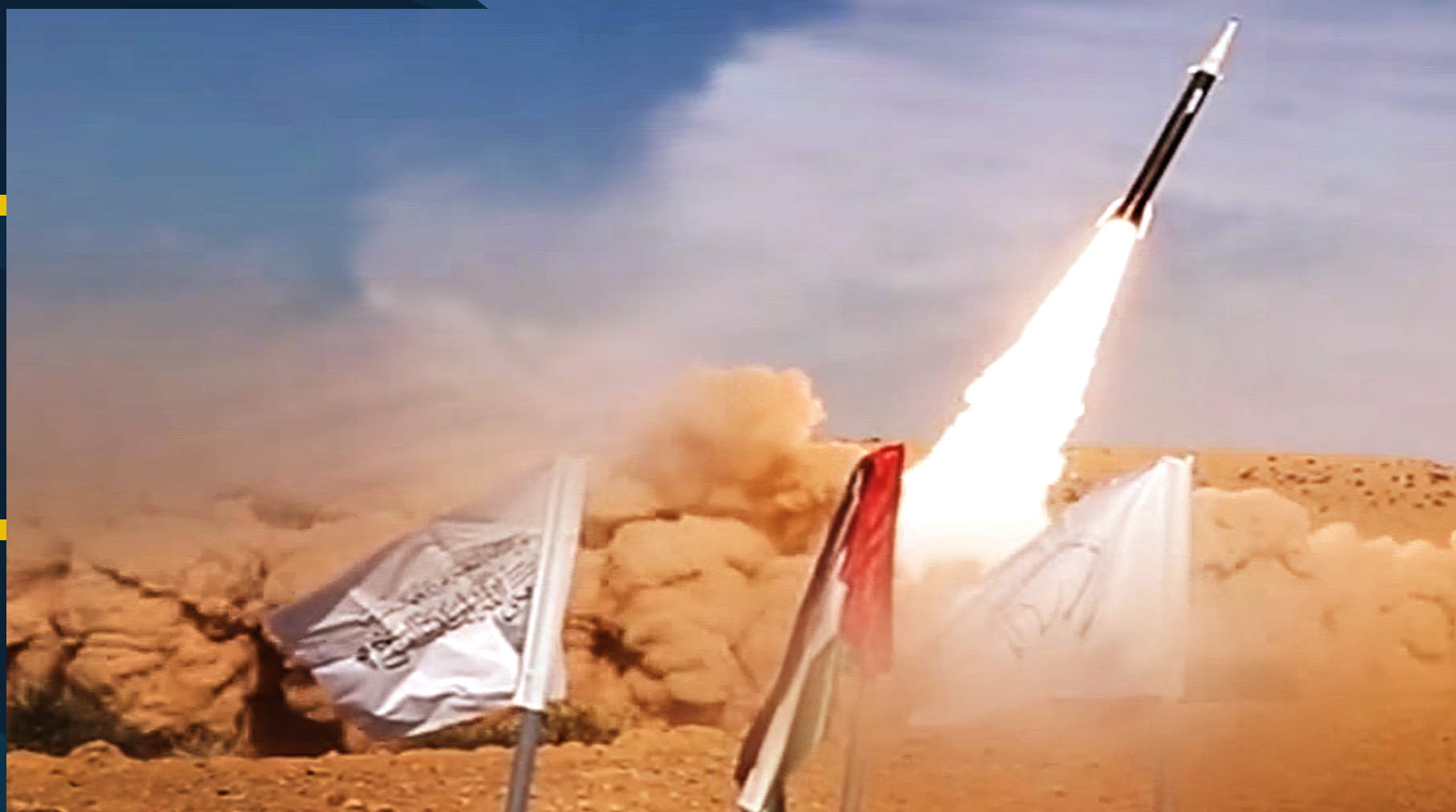

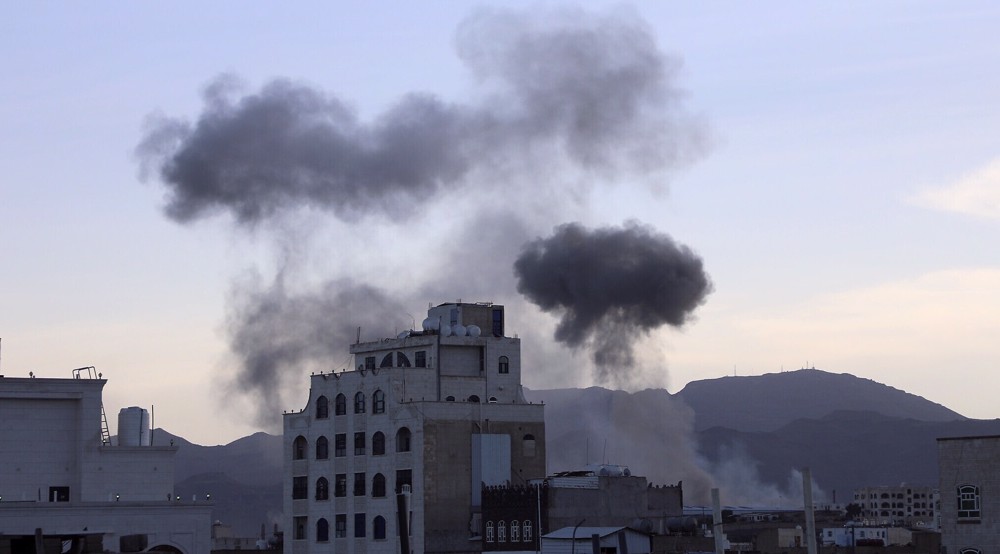
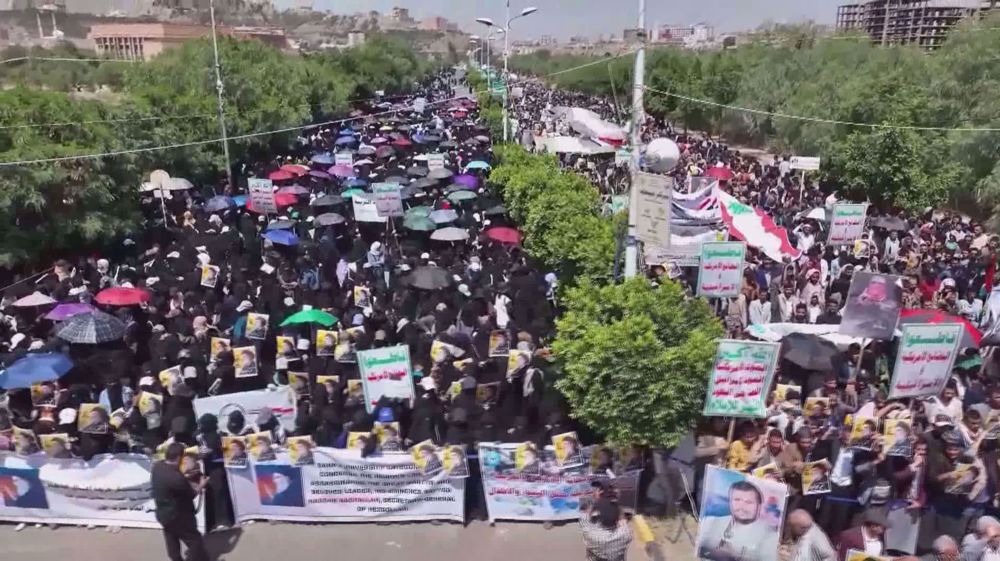
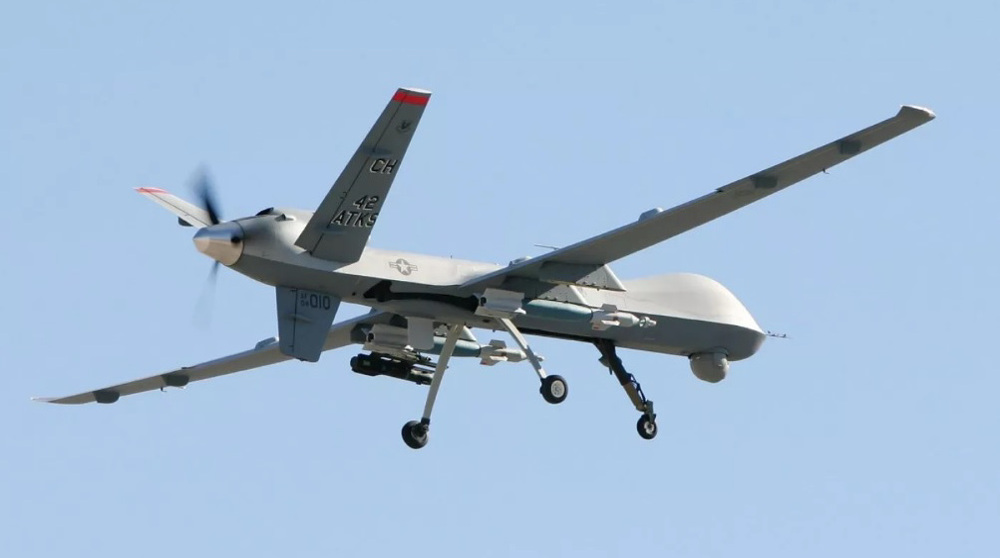

 This makes it easy to access the Press TV website
This makes it easy to access the Press TV website